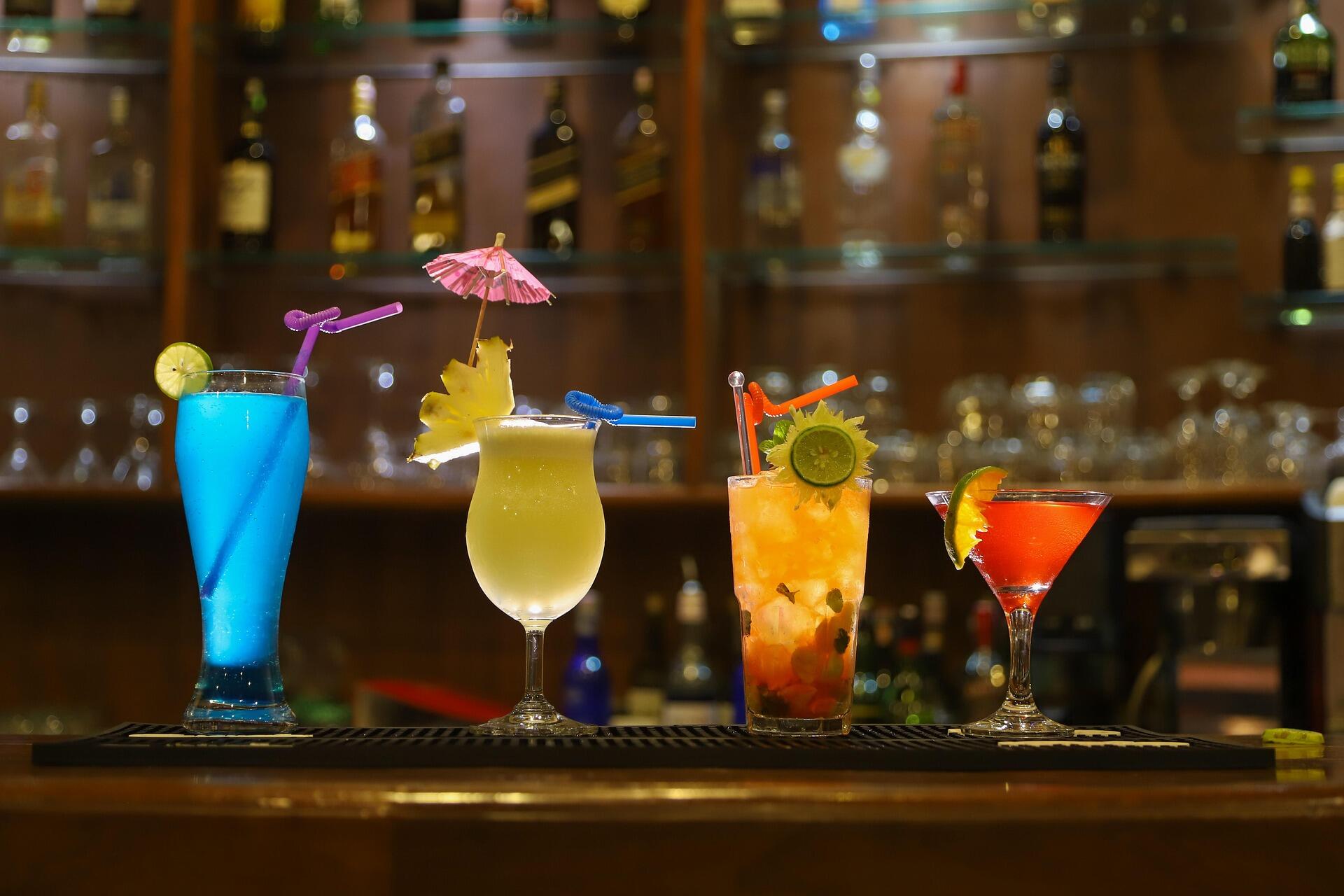All the top moves, shakes and red hot takes from Azzet's editorial team are right here in your weekly business wrap every Friday (18 July, 2025).
We've been tracking tremors in global trade, earnings surprises, and surging innovation this week at Azzet.com.
In leadership and legacy, Rio Tinto named West Australian country boy Simon Trott as its CEO, highlighting industry roots in the executive suite.
In Europe, the surprise resignation of Diageo’s CEO prompted boardroom recalibration at the Guinness parent. Meanwhile, down on the Gold Coast, a property developer’s stock soared as its surfing founder literally rode into retirement, leaving behind a pipeline of profitable projects.
Markets digested a mixed Q2 reporting season, with JPMorgan Chase’s profits tumbling due to the absence of a prior Visa gain, while BlackRock dropped 5.9% despite beating earnings forecasts.
Gold markets split investor sentiment on whether H2 would bring a bull run or a fool’s rally.
Wells Fargo topped estimates, but cut guidance, and CBA outperformed its peers with robust returns. And Citigroup delivered a robust second-quarter performance in 2025.

A cocktail of mixed corporate earnings, policy pivots, and geopolitical tension
Financial heavyweights sent divergent signals: Goldman Sachs posted higher Q2 profits on strength in banking and equities, while Bank of America delivered mixed results marked by solid consumer banking gains and weakened investment flows.
Meanwhile, Morgan Stanley reported a strong profit print, but saw its shares dip, highlighting investor caution.
On the healthcare front, Johnson & Johnson lifted guidance after beating estimates, countering downbeat sentiment in aviation where United Airlines revised its 2025 profit targets amid operational headwinds and demand shifts. Corporate confidence echoed higher, with GE Aerospace lifting its long-term outlook following record engine deals.
France considered cutting public holidays in a controversial move to address its growing deficit. Renault cut its guidance due to weaker-than-expected sales and a slowdown in the European market.
Monetary policy headlines delivered their own tremors, as the Reserve Bank of Australia signalled a strategic shift toward digital currency, opening debate on CBDCs and sovereign monetary control.
Against this backdrop, global tension intensified: Israel’s strike on Syria’s defence ministry drew in the United States, complicating diplomatic channels as commodity markets jittered.
Investors now weigh central bank innovation, earnings trajectory, and mounting political risk in tandem, with digital infrastructure, liquidity, and fiscal exposure taking centre stage in Q3 rebalancing strategies.
The U.S. CPI print landed at 2.7%, reigniting Fed rate-cut demands from U.S. President Donald Trump and adding weight to FX moves tracked in our weekly dollar index analysis.
In Australia, takeover activity surged as Abacus Property received a sweetened bid, while Pact Group confirmed its ASX exit, boxing in minority shareholders.
Retail investors are watching rates with renewed intensity as bruised forecasters go “double or nothing” on central bank moves. Meanwhile, supertrend analysis flagged ASX biotech stocks and mental health insurance claims (link) as key flashpoints.

On the trade front, tariff threats escalated fast
Trump threatened fresh tariffs on Russia over Ukraine, and his 30% proposal for Mexico and the European Union was closely followed by confirmed 19% hikes on Indonesian goods, triggering safe-haven currency flows and adding pressure to dovish central banks like Australia’s RBA, which held rates amid sentiment gains.
In China, GDP topped forecasts at 5.2% despite slowing momentum, following Prime Minister Albanese’s dual-track visit focused on trade and defence.
Climate and energy news carries strategic weight, with China’s deployment of the world’s largest floating wind turbine and UWA’s $27 million net-zero agriculture push.
BHP’s team-up with China’s BYD signalled battery metals were entering a critical inflection point.
That sector saw further fuel from SpaceX’s $2 billion pledge to Elon Musk’s AI startup, while xAI’s Grok 4 stunned analysts with its “Humanity’s Last Exam”.
Technology and energy took centre stage midweek, with petabit-per-second internet speeds announced by Japanese researchers.
Trump announced investments of more than US$90 million from private companies tied to AI, tech and energy during the inaugural Pennsylvania Energy and Innovation Summit.
The race for talent and autonomy intensified as Cognition acquired Windsurf after Google poached key staff, and Polestar’s refusal to rejoin FCAI signalled tensions over EV regulation.
And crypto surged, with Bitcoin hitting new highs on industry tailwinds. But a vote to consider cryptocurrency regulation legislation was blocked in the U.S. Congress, with shares in some crypto companies dropping.
The Trading Floor was active too, with strong moves from Drone Shield (ASX: DRO), Hansen Technologies (HSN), Compumedics (CMP), Hub24 (HUB), Tyro Payments (TYR), AuKing Mining (AKN), Catalina Resources (CTN), Rio Tinto (RIO), Mount Gilson (MGX), Car Group Limited (CAR), Clarity Pharmaceuticals (CU6), Ionic Rare Earths (IXR), BHP (BHP), Mesoblast (MSB), and Askari Metals (AS2).

Back on domestic soil, financial structure reforms gained traction
The RBA flagged $2.4 billion in savings from card fee overhauls, while superannuation funds repositioned themselves as $56 billion productivity engines.
Meanwhile, a shift in housing finance has emerged with deposit-only loans targeting high-income, low-liquidity borrowers.
Globally, political ripples collided with energy markets as Ukraine prepped for leadership change, nominating Yulia Svyrydenko as Prime Minister. And political campaigning kicked off in Tasmania’s snap election.
The US Treasury posted its first June surplus since 2017, giving fiscal hawks fresh talking points. In the United Kingdom, Zarah Sultana’s push to launch a new leftwing party added to the political ferment.
The Trump Organization revealed plans for a tower in Romania, while an LVMH brand faced legal scrutiny over worker exploitation.
Culture and lifestyle rounded out the week, with Bad Bunny’s $200 million boost to Puerto Rico’s economy, Marks & Spencer launching sleepwear with David Jones, and NOVA Entertainment bringing Diary of a CEO to Australia. And Snoop Dogg financially bit into a football team.
In air travel, Saudia Airlines took top honours for punctuality, while aviation safety came under renewed scrutiny following Air India’s fatal fuel cut crash.
In agriculture, a red wine glut looms as the grape crush hits records. A spectacular 517-hectare property nestled in Queensland's southern Whitsundays — is officially on offer through Colliers International.
And at sea, a massive iceberg was last seen heading for Greenland, closing a week that balanced industrial grit, market rhythm, and environmental fragility — all under the close watch of Azzet's global editors.

Automation wave continues to reshape future of work and marketing
The national unemployment rate nudged upward to 4.3% in June, according to the ABS, just as retirees face increased investment risks amid an adviser exodus.
On the flipside, wealth strategies like salary sacrifice into superannuation are gaining momentum among younger professionals, offering tax advantages and a shot at long-term stability.
If you missed it, All That Jazzet also unpacked Optus Sport’s retro refund strategy, where cheques now serve as Australia's fintech punchline.
In the US, AI-produced video ads now make up half of campaign output, reflecting PR’s evolution toward machine-led storytelling.
Yet, as automation surges and traditional sectors pivot, this underscores a deeper tension: How public relations is changing in the age of AI and automation, and why the human touch still matters.
And last but not least, Tasmania is poised for another hung parliament following its 19 July (Saturday) state election, with polling showing the Liberals leading Labor but falling short of a majority. Maybe they should lower the voting age to 16, like they're aiming to do in the U.K.?



